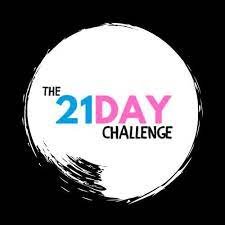- Introduction
- The concept of self-change
- The significance of the 21-day timeframe
- Understanding Behavioral Patterns
- Identifying habits to change
- Analyzing triggers and rewards
- Setting Clear Goals
- SMART goals for effective change
- Breaking down long-term objectives
- Creating a Structured Routine
- Importance of a daily schedule
- Incorporating positive habits
- Mindfulness and Self-Awareness
- Cultivating awareness of thoughts and actions
- Practicing mindfulness techniques
- Positive Affirmations
- Rewiring the subconscious mind
- Crafting personalized affirmations
- Physical Exercise for Mental Well-being
- Connection between physical activity and mental health
- Establishing an exercise routine
- Healthy Nutrition and Hydration
- Impact of diet on mood and energy levels
- Importance of staying hydrated
- Seeking Support and Accountability
- Building a support system
- The role of accountability partners
- Learning and Skill Development
- Continuous self-improvement
- Acquiring new skills and knowledge
- Celebrating Small Wins
- Acknowledging progress
- Boosting motivation through achievements
- Adapting to Setbacks
- Embracing resilience
- Learning from challenges
- Gratitude Practice
- Shifting focus to positive aspects
- Keeping a gratitude journal
- Visualization Techniques
- Creating a mental picture of success
- Using visualization for motivation
- Reflection and Adjustment
- Regular self-assessment
- Adjusting strategies for effectiveness
- Conclusion
- Summarizing the transformative journey
- Encouraging readers to embark on their 21-day change
How do you change yourself within 21 days?
Introduction
Embarking on a journey of self-change is a profound endeavor that often requires commitment and a strategic approach. The concept of transforming oneself within 21 days has gained popularity, and in this article, we will explore actionable steps to make meaningful changes in your life within this timeframe.
Understanding Behavioral Patterns
Identifying Habits to Change To change oneself, it’s crucial to identify the habits that need modification. Reflect on behaviors that hinder personal growth and recognize patterns that contribute to a stagnant state.
Setting Clear Goals
SMART Goals for Effective Change Setting clear and achievable goals is the cornerstone of successful self-change. Utilize the SMART criteria (Specific, Measurable, Achievable, Relevant, Time-bound) to outline objectives and create a roadmap for your transformation.
Creating a Structured Routine
Importance of a Daily Schedule Structure brings discipline, and a daily routine is instrumental in fostering positive change. Develop a structured schedule that includes time for self-improvement activities, ensuring consistency in your efforts.
Mindfulness and Self-Awareness
Cultivating Awareness of Thoughts and Actions Mindfulness is key to self-change. Cultivate awareness of your thoughts and actions, and develop the ability to observe without judgment. Mindfulness techniques, such as meditation, can aid in this process.
Positive Affirmations
Rewiring the Subconscious Mind Positive affirmations are powerful tools for rewiring the subconscious mind. Craft personalized affirmations that resonate with your goals and repeat them consistently to reinforce positive beliefs about yourself.
Physical Exercise for Mental Well-being
Connection Between Physical Activity and Mental Health Physical exercise not only contributes to physical well-being but also has a profound impact on mental health. Establishing a regular exercise routine releases endorphins, promoting a positive mindset.
Healthy Nutrition and Hydration
Impact of Diet on Mood and Energy Levels What you eat directly affects how you feel. Embrace a balanced and nutritious diet, and ensure proper hydration. Nutrient-rich foods provide sustained energy, positively influencing your mood and overall well-being.
Seeking Support and Accountability
Building a Support System Transformation is often more successful with a support system. Surround yourself with individuals who uplift and encourage your journey. Additionally, having an accountability partner can provide the necessary motivation.
Learning and Skill Development
Continuous Self-Improvement A commitment to continuous learning enhances personal growth. Acquire new skills and knowledge that align with your aspirations, fostering a sense of accomplishment and empowerment.
Celebrating Small Wins
Acknowledging Progress Celebrate every small achievement along the way. Acknowledging progress boosts motivation and reinforces the belief that change is possible.
Adapting to Setbacks
Embracing Resilience Setbacks are inevitable, but resilience is key to overcoming them. Embrace challenges as opportunities for growth and learn from every experience.
Gratitude Practice
Shifting Focus to Positive Aspects A gratitude practice shifts your focus from what’s lacking to what you appreciate. Keep a gratitude journal and regularly reflect on the positive aspects of your life.
Visualization Techniques
Creating a Mental Picture of Success Visualization involves creating a mental image of your desired outcome. Envisioning success enhances motivation and provides a clear direction for your journey.
Reflection and Adjustment
Regular Self-Assessment Periodically assess your progress. Reflect on what is working and what needs adjustment. Adapt your strategies to ensure continued effectiveness.
Conclusion
In conclusion, the journey of self-change within 21 days is both empowering and transformative. By understanding behavioral patterns, setting clear goals, and incorporating positive habits, you can pave the way for a better version of yourself.
Unleash the potential within you, embrace the process, and witness the remarkable changes that can occur in just 21 days.
FAQs
- Is it really possible to change oneself in just 21 days?
- While significant transformations may take longer, 21 days is a practical timeframe to establish new habits and initiate positive change.
- How do I stay motivated throughout the process?
- Staying connected with your goals, celebrating small wins, and having a support system can help maintain motivation.
- What if I encounter setbacks during the 21-day journey?
- Setbacks are normal; resilience is key. Use setbacks as learning opportunities and adapt your strategies accordingly.
- Do I need to follow all the outlined steps, or can I choose specific ones?
- Tailor the steps to fit your personal journey. Experiment with what works best for you and adjust accordingly.
- Can I extend the 21-day period for further improvement?
- Absolutely. The 21-day concept is a starting point. Continue the positive changes beyond this period for ongoing self-improvement.





